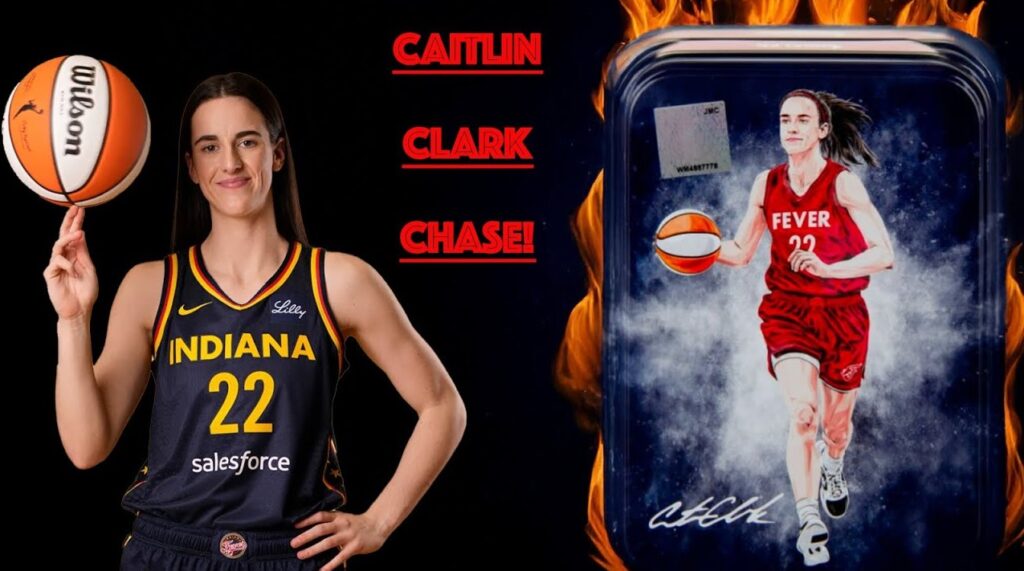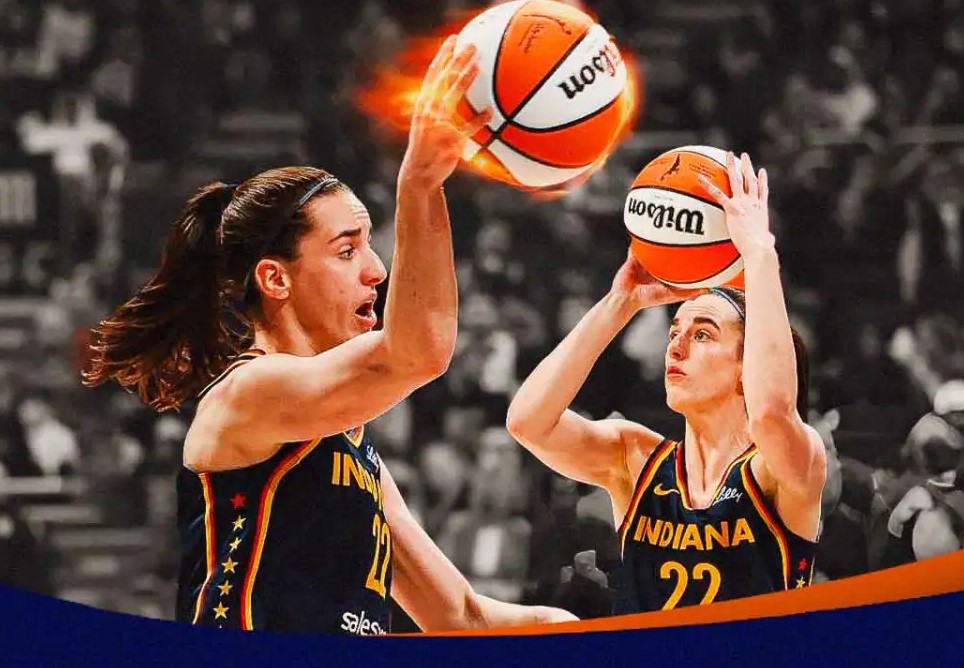Caught in the Crossfire: Caitlin Clark and the Culture Wars She Never Asked For
Caitlin Clark has repeatedly stated that all she wants is to play basketball — to compete, to improve, and to contribute to her team — yet the culture wars swirling around American society refuse to let her simply be an athlete. Despite her silence on many divisive topics, she has become an involuntary symbol in a larger political and ideological struggle that she never signed up for and cannot seem to escape.

From the moment Clark emerged as a generational talent in women’s college basketball, culminating in a historic NCAA season that drew more viewers to the women’s championship game than the men’s, the national spotlight has refused to waver. While this could have been a straightforward sports story — a young phenom elevating an entire league — her transition into the WNBA has instead become a reflection of deeper cultural rifts in America.
Commentators, pundits, and influencers from both the left and the right have begun shaping narratives around Clark that often have little to do with her actual words or actions. Conservative media figures like Clay Travis have openly suggested that Clark should break away from the WNBA and launch her own league — a dramatic move meant to symbolize independence from a structure they claim undervalues her worth and fails to protect her properly. Travis went so far as to say, “She’s worth more than the entire WNBA,” declaring that a new league centered around Clark could attract the audience and media partners she deserves.
At the same time, progressive voices have taken a different but equally intrusive stance, insisting that Clark should downplay her prominence in favor of a more collective representation of the league’s talent. Washington Mystics owner Sheila Johnson criticized Time magazine’s decision to feature Clark alone as “Athlete of the Year,” arguing that the entire WNBA should have been celebrated as a whole, as focusing on one player can create resentment and feelings of exclusion among others.

Caught in this ideological tug-of-war, Clark has chosen a third path: neutrality. She has rarely weighed in on political topics and has shown no interest in aligning herself with any particular ideological faction. Her few public comments on sensitive issues, such as acknowledging the privileges she has experienced as a white athlete and recognizing the foundational contributions of Black women to the league, were measured and honest — but even those were met with criticism from conservative circles that accused her of pandering to progressive values.
One of the more revealing moments came during a labor-related controversy when reports surfaced that Clark’s team was not present during a players’ meeting about better pay. Speculation erupted that Clark might oppose the unionization efforts within the league — a narrative that would have fit neatly into certain conservative talking points. However, those assumptions were shattered when she later appeared in a shirt that read “Pay Us What You Owe Us,” signaling solidarity with her peers and advocating for fair treatment across the board.
The situation becomes even more complex when considering Clark’s identity in relation to the demographics of the WNBA. According to journalist Christine Brennan’s book On Her Game, the league is comprised of approximately 74% Black or mixed-race players and includes a significant LGBTQ+ population. Clark, by contrast, is a straight white woman from the Midwest — and her meteoric rise has prompted uncomfortable questions about how race, identity, and marketability intersect in women’s sports.
These tensions are exacerbated by visible disparities in treatment. Fans and analysts alike have expressed concern that the WNBA is not doing enough to protect Clark from increasingly physical and sometimes dangerous fouls on the court. While the NFL is frequently criticized for coddling star quarterbacks, the WNBA seems indifferent — or worse, complacent — about the hard hits Clark takes, even as her games drive ratings and merchandise sales to record highs.
Some argue that the league’s inaction stems from resentment — that Clark’s popularity is seen not as a rising tide that lifts all boats, but as a lightning rod that draws attention away from long-established stars. Others say the WNBA simply does not know how to manage the kind of explosive popularity Clark brings, especially when that popularity cuts across traditional political and cultural lines.
Jason Whitlock, a conservative sports commentator, went so far as to say that the league is “blowing the Caitlin Clark gift,” calling her rise “the most fascinating story in sports” — not necessarily because of what she’s doing on the court, but because of how society is reacting to her presence off of it.
Clark, for her part, remains visibly bewildered by the narratives being crafted around her. In an interview with Time, she admitted, “I tell people I feel like the most controversial person. But I am not. It’s just because of all the storylines that surround me. I literally try to live and treat everybody in the same exact respectful, kind way. It just confuses me at times.”

This sense of confusion is likely shared by fans who simply want to enjoy watching Clark play basketball without having to decode the political subtext of every pass, foul, or headline. According to Google Trends, the most common searches about Clark aren’t about her politics or identity — they are questions like “Is Caitlin Clark playing tomorrow?” and “Is Caitlin Clark playing tonight?” In other words, the public may be more interested in watching her play than turning her into a cultural Rorschach test.
There is a lesson here, not only for the WNBA, but for all of us who consume sports through the lens of broader social commentary. While it’s understandable — even necessary — to examine how race, gender, and power operate within professional leagues, we must also acknowledge the autonomy of individual athletes who may not wish to carry those burdens on their shoulders.
Caitlin Clark has never asked to be a symbol. She has not positioned herself as the face of a political movement, nor has she disrespected those who see things differently than she does. She simply plays — with passion, with precision, and with a competitive fire that has reignited interest in women’s basketball on a scale few thought possible.
And perhaps, in that, lies the true power of Caitlin Clark: not in what she represents to others, but in what she chooses to be for herself. A player. A competitor. A young woman navigating immense pressure with grace and grit, asking only to be judged by the quality of her game — and not the noise that echoes around it.